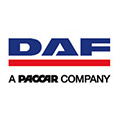04_18 The Act on transparency in public life – what does it mean for entrepreneurs?
Draft Act
The Act on transparency in public life has not entered into force yet, but it has raised much controversy in a short period of time. This is due, among many other things, to the fact that it imposes important duties not only on companies but also on their managers. What can management board members expect and what should they prepare for?
Private or public business?
The vast majority of obligations under the Act apply to public sector entities and the so-called obligated companies, i.e. those in which the State Treasury or a local self-government unit holds at least 20% of the share capital or in which it holds the same rights as the dominant entrepreneur. However, some of the obligations will apply to wholly private companies that have nothing to do with the public sector.
Anti-corruption procedures
The primary duty to be imposed also on private entities is to take actions aimed at counteracting corrupt practices.
According to the assumptions of the Act, all medium-sized and large entrepreneurs in the private and public sector, regardless of the industry, will be required to implement and apply internal anti-corruption procedures. These solutions are intended to prevent persons acting on behalf of or for entrepreneurs from committing corruption offences. Those include mainly bribery, paid recommendation, managerial bribery or money laundering.
To facilitate the fulfilment of the new obligation, the Act specifies examples of measures that can be applied by entrepreneurs:
- Informing employees about criminal liability for corruption offences,
- Preparation and introduction of an anti-corruption code in the company,
- Introduction of the principles of receiving gifts and other benefits by employees,
- Introduction of the methods to inform the employer about corruption proposals and to report irregularities.
High fines of up to PLN 10,000,000 will be imposed on companies should they fail to implement or apply anti-corruption procedures. The same fine will be imposed on an entrepreneur who feigns the introduction of anti-corruption solutions in the company or when the solutions are ineffective. An additional condition for imposing such a penalty will be to bring a corruption charge against a person acting on behalf of or for the entrepreneur (regardless of whether the allegation turns out to be well-grounded).
However, this is not all. Along with the imposition of a fine on the entrepreneur, a five-year ban on applying for a public contract may be imposed. For many companies, this ban may be much more severe than a financial sanction.
It will be crucial for management board members that the liability of the company for violation of the Act may potentially trigger their personal financial liability in relation to the company. Such a situation may take place if the company suffers damage as a result of a breach of obligations related to the proper implementation of anti-corruption procedures.
Register of civil law contracts
Obligated companies (i.e. those in which the State Treasury or a local self-government unit holds at least 20% of the share capital or in which it holds the same rights as the dominant entrepreneur) will have to keep a register of civil law contracts with a value of at least PLN 2,000. Such a low maximum limit means that the vast majority of contracts will have to be entered into the registers.
Violation of the obligation to keep the register may result in criminal liability for persons responsible for this area at the company – usually the company’s management board. Failure to keep or update the register or providing false information in the register is to be subject to penalty of imprisonment of up to three years.
Declarations of financial status
The Act considerably extends the group of persons obliged to submit declarations of financial status. These statements are to be submitted by managers who have not been covered by this obligation so far, i.e. members of the management boards of obligated companies. However, these declarations will be confidential. Managers will face a penalty of imprisonment of up to 5 years for violation of the time limit for submitting a declaration or for providing false information or concealing some information in it.
Impact of the Act on company operations The draft Act on transparency in public life will have a significant impact on the internal operations of companies, both in the public and private sector. The new obligations of management board members are supposed to improve the transparency of company operations and eliminate (or at least limit) corrupt practices. The changes are consistent with the current regulatory trend being justified by improved transparency and guarantees offair playin business.
It is worth noting that parallelly to the Act on transparency in public life, work is underway to amend the Act on liability of collective entities for criminal offences. The new solutions are intended to impose stricter liability on companies and improve the conduct of criminal proceedings against them.
The collective regulation of duties related to the development and application of anti-corruption mechanisms is a novelty in our legal system. However, similar regulation has been functioning since 1977 in the USA (Foreign Corrupt Practices Act), and other regulations are constantly introduced in European countries – including the UK Bribery Act of 2010 in the United Kingdom, the anti-corruption Act of 2012 in Italy, Gesetz zur Bekämpfung der Korruption of 2015 in Germany or the anti-corruption Act Sapin II of 2016 in France.
When will it enter into force?
Initially, the Act was to enter into force in 2017. In view of numerous comments on the draft, this date has already been postponed twice. Supposedly, the Act will come into force within the next few months at the latest.
























































